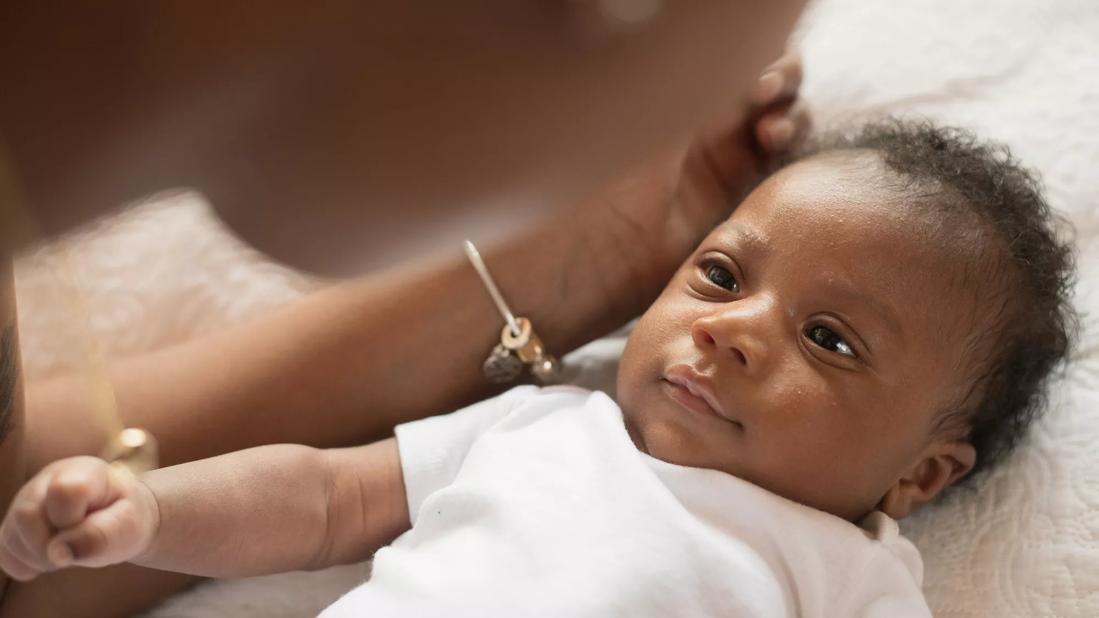Small study examines the association of a pandemic birth with neurodevelopmental status

Researchers at Columbia University found that babies born during the first year of the COVID-19 pandemic measured lower in gross motor, fine motor and personal-social domains at 6 months, compared to a historical cohort born before the pandemic.
Advertisement
Cleveland Clinic is a non-profit academic medical center. Advertising on our site helps support our mission. We do not endorse non-Cleveland Clinic products or services. Policy
The prospective cohort study, published in JAMA Pediatrics, included 255 infants born between March and December 2020 at Columbia University Irving Medical Center. Of these infants, 114 were exposed to maternal SARS-CoV-2 infection in utero and 141 were unexposed.
Though vertical transmission of SARS-CoV-2 is rare, some data have substantiated associations between adverse infant development and maternal immune response related to severe infection. In their study, the authors found no association. Maternal infection status, its timing or severity did not affect neurodevelopment, according to their findings, but birth during the first year of the pandemic did.
Marie E. Trace, MD, a developmental-behavioral pediatrician at Cleveland Clinic Children’s, who was not involved in the study, says the data are intriguing but not entirely surprising.
“We’ve seen so much variability in how SARS-CoV-2 affects people based on comorbidities and other factors, it makes sense there were no consistent findings associated with maternal infection and infant neurodevelopment, particularly in this relatively small sample size,” she says.
“However, what was fairly consistent among the pandemic cohort is the environment in which the babies were born, largely characterized by social isolation, limited exposure to life outside the home, parental stressors, and their caregivers wearing masks,” Dr. Trace notes. “In some ways, we see this consistent pandemic environment versus this historical non-pandemic environment.”
Advertisement
The researchers measured infant behaviors using the Ages & Stages Questionnaire, 3rd Edition (ASQ-3), a standard modality for developmental assessment. Compared to the control group, the infants born during the pandemic scored lower on gross motor (P < .005), fine motor (P < .005), and personal-social (P < .05) subdomains in fully adjusted models.
The authors cite limitations in their study, including that the data represent a single-site experience while New York was the U.S. epicenter of the pandemic. Although, Dr. Trace notes, infectious disease prevention efforts, such as masking, isolating and limiting exposures, in addition to pandemic-related anxieties, have been a fairly global experience.
They also note that 6 months is still relatively early in the child’s development and, although concerning, these measurements aren’t necessarily predictive of future developmental patterns.
Dr. Trace says these findings do raise an important point about children and their early environment. She says, “Genes and temperament provide a blueprint for development, but experiences shape children’s brains in fundamental ways. They have an actively developing neural network, especially in their first five years of life, and then pair this with a less stimulating environment—not to mention the stressors burdening their caregivers.”
The authors ultimately conclude that COVID-19-related stress and, more specifically, job loss, food and housing insecurity, and an uptick in symptoms of anxiety and depression, should be considered a potential underlying mechanism for the neurodevelopmental differences among this cohort. They suggest longer-term monitoring may be warranted.
Advertisement
Dr. Trace emphasizes that there is still so much we are learning about the effects of the pandemic on our youngest generation. But when it comes to monitoring at the individual level, she encourages a team-based approach as an on-ramp to more specialized care.
“Supporting a ‘pandemic child,’ or any child, with suspected neurodevelopmental differences requires a team-based approach from the child’s parents and other caregivers, teachers, and clinical providers,” she concludes.
Advertisement
Advertisement

Swift, aggressive thiamin therapy may be key to preventing long-term neurological injury

Case underscores potential dangers of combining psychedelics with tranylcypromine and stimulant medications

Researchers explore how changes in the gut microbiome influence the brain's reward response to alcohol

Researchers explore new avenues for the management of psychiatric illness in patients with seizure disorders

Addiction experts use decades of research and clinical experience to help patients overcome substance use disorders

Specialized course helps APPs navigate clinical concerns and interpersonal skills

Comprehensive mental health screening may help prevent postsurgical risks

The reassuring potential of psychedelics for the management of substance use and treatment-resistant mental health disorders